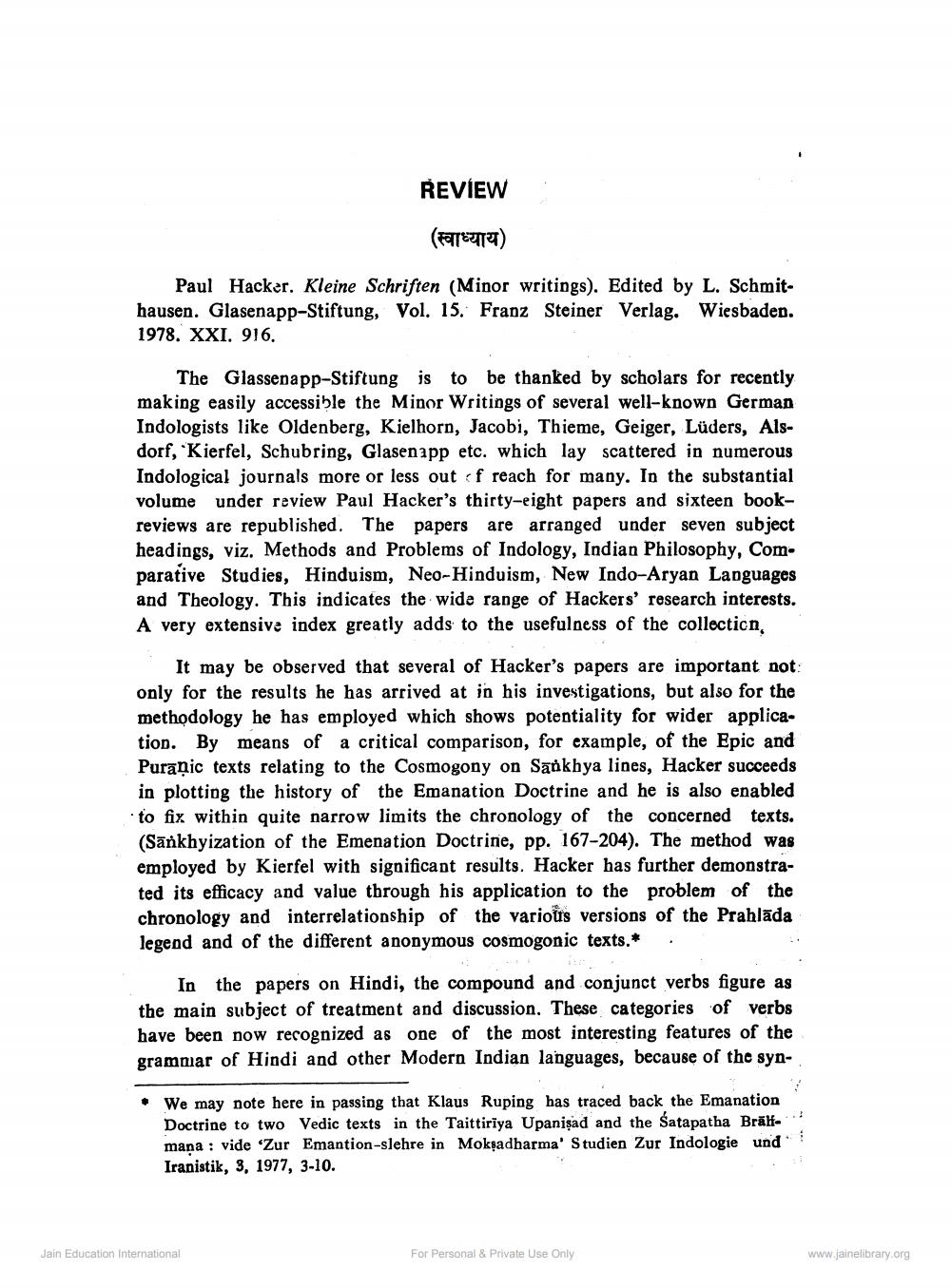________________
REVIEW
(FTETTO)
Paul Hacker. Kleine Schriften (Minor writings). Edited by L. Schmithausen. Glasenapp-Stiftung, Vol. 15. Franz Steiner Verlag. Wiesbaden. 1978. XXI. 916.
The Glassepapp-Stiftung is to be thanked by scholars for recently making easily accessible the Minor Writings of several well-known German Indologists like Oldenberg, Kielhorn, Jacobi, Thieme, Geiger, Lüders, Alsdorf, Kierfel, Schubring, Glasen app etc. which lay scattered in numerous Indological journals more or less out <f reach for many. In the substantial volume under review Paul Hacker's thirty-eight papers and sixteen bookreviews are republished. The papers are arranged under seven subject headings, viz. Methods and Problems of Indology, Indian Philosophy, Comparative Studies, Hinduism, Neo-Hinduism, New Indo-Aryan Languages and Theology. This indicates the wide range of Hackers' research interests. A very extensive index greatly adds to the usefulness of the collection,
It may be observed that several of Hacker's papers are important not only for the results he has arrived at in his investigations, but also for the methodology he has employed which shows potentiality for wider application. By means of a critical comparison, for example, of the Epic and Puranic texts relating to the Cosmogony on Saukhya lines, Hacker succeeds in plotting the history of the Emanation Doctrine and he is also enabled to fix within quite narrow limits the chronology of the concerned texts. (Sānkhyization of the Emenation Doctrine, pp. 167-204). The method was employed by Kierfel with significant results. Hacker has further demonstrated its efficacy and value through his application to the problem of the chronology and interrelationship of the various versions of the Prahlāda legend and of the different anonymous cosmogonic texts.* .
In the papers on Hindi, the compound and conjunct verbs figure as the main subject of treatment and discussion. These categories of verbs have been now recognized as one of the most interesting features of the grammar of Hindi and other Modern Indian languages, because of the syn
• We may note here in passing that Klaus Ruping has traced back the Emanation
Doctrine to two Vedic texts in the Taittiriya Upanişad and the Satapatha Brāle mana : vide "Zur Emantion-slehre in Mokşadharma' Studien Zur Indologie und Iranistik, 3, 1977, 3-10.
Jain Education International
For Personal & Private Use Only
www.jainelibrary.org




